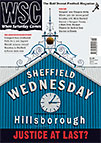 The long search for truth by the Hillsborough campaigners has been vindicated but, as Rob Hughes writers, time will tell whether they now get the justice they deserve
The long search for truth by the Hillsborough campaigners has been vindicated but, as Rob Hughes writers, time will tell whether they now get the justice they deserve
And so the wait is over. On September 12, some 23 years on, previously unseen government and police documents, in tandem with the Hillsborough Independent Panel’s report into the tragedy, were finally released to the public. The results were damning. As the families of the victims had insisted all along, Liverpool fans were found to be blameless for what happened on that horrifying afternoon in April 1989.